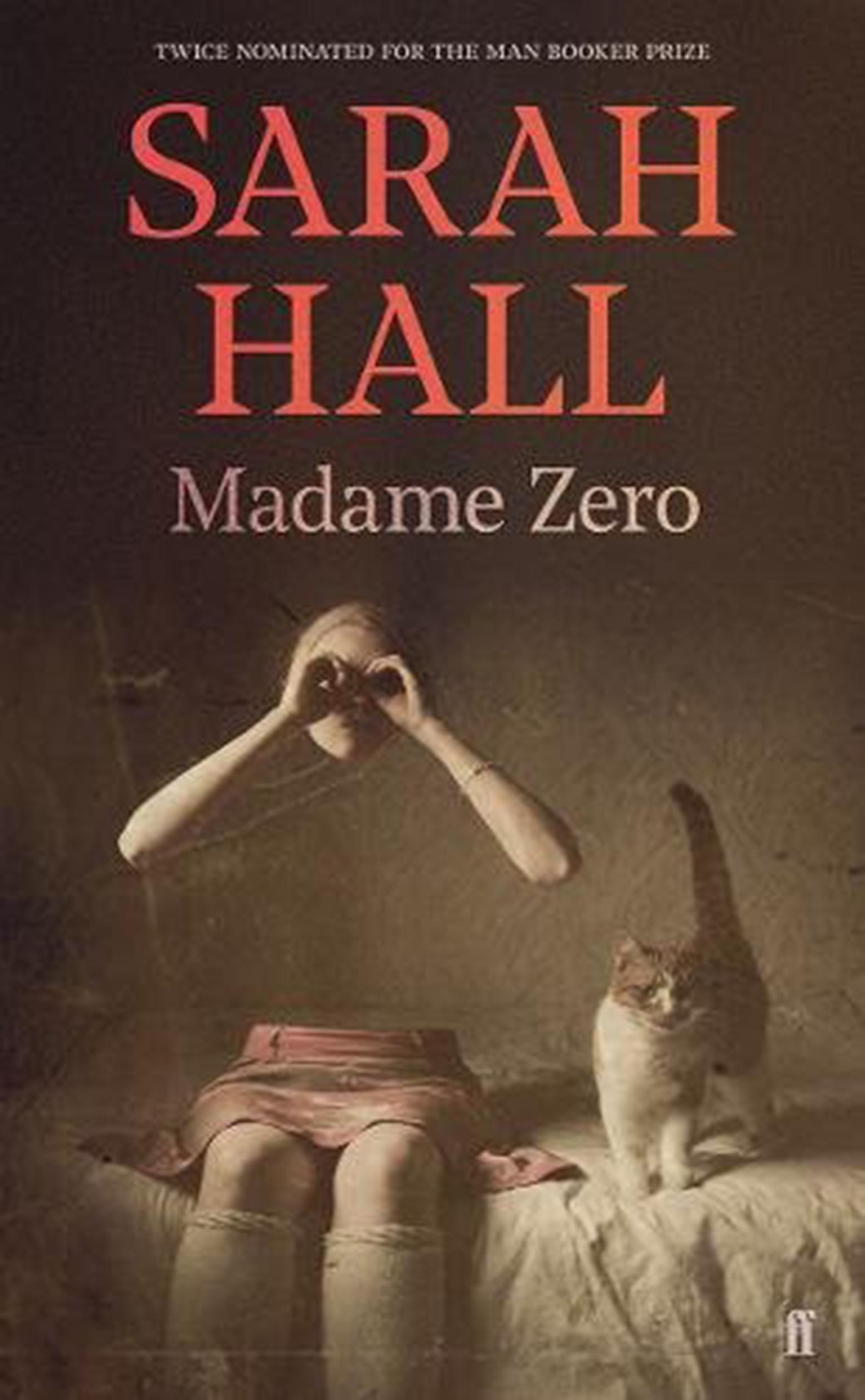Sarah Hall: Madame Zero review – eerie tales of calamity and change | reviews, news & interviews
Sarah Hall: Madame Zero review – eerie tales of calamity and change
Sarah Hall: Madame Zero review – eerie tales of calamity and change
Take a walk on the wild sides of the mind, and the world

Five thousand miles away from her native Lake District, I first understood the eerie magnetism of Sarah Hall’s fiction. As a regional judge for the Commonwealth Writers Prize, I’d travelled to join the jury’s deliberations in Sri Lanka. I was keen for Hall’s debut novel, Haweswater, to prevail but unsure what my fellow-judges – both from the Subcontinent – would make of this local drama set in a bleak English backwater. Hall’s hardscrabble uplands scarcely resemble Wordsworth’s.
Since then, Hall has made good on the promise of Haweswater in novels and stories that patrol the troubled edgelands between nature and humankind, wildness and civility, chaos and order. In novels such as The Carhullan Army and The Wolf Border, she has shown that these disputed borderlines cut through the mind as much as through society. Her second collection of stories, Madame Zero returns to the motifs and moods that have marked her work so far. This is an accomplished tour of the territory of danger and desire that she has made her own: if not a breakthrough work, then a deeply impressive reminder of her special gifts of vision, and design.
Almost a signature tale, “Mrs Fox” – winner of the BBC National Short Story Award – depicts through a baffled husband’s eyes his wife’s sudden transformation from woman to fox. Yes, the idea may owe something to David Garnett’s cult 1920s novella Lady Into Fox – but the execution, and the voice, could only be Hall’s. “Unknowable, as all clever women are,” his wife remains enigmatic, “withheld”, to the man who cohabits with her in a heavily-mortgaged new-build house on one of those liminal tracts of cleared countryside – a bulldozer-blasted heath – where Hall’s fiction loves to dwell. On an autumn walk, the vulpine metamorphosis happens without warning: “Topaz eyes glinting. Scorched face. Vixen.” As Kafka knew, as all the great fantastic tales show, you must follow the inexplicable miracle with humdrum realism. Purged of “the disease of being human”, the fox lives companionably for a while with her former mate. He has researched “the world of madness” and found in myths of transmogrification one “upsetting” aspect: “an act of will”. In time, “he has given up looking for meaning”. As should we. Hall slams no doors to interpretation; neither does she shove us through any. A feral whiff of mystery lingers.
Several stories raid the dystopian domains where Hall has foraged ever since The Carhullan Army. In “Theatre 6”, the illegality of abortion has cowed medical staff and driven women back into clandestine self-harm. Every emergency life-saving procedure risks the wrath of the “Department for the Protection of Unborn Children”. In many jurisdictions, Hall’s near-future nightmare is no more than everyday reality. With “Later, His Ghost”, she ventures into climate-change apocalypse: an over-familiar genre, but one she scarily refreshes. “Some say the world will end in fire,” wrote Robert Frost, “Some say in ice.” For Hall, it ends in wind. Constant hurricanes have flattened Britain and pulverised its physical and social architecture: “Whatever had been kept in check by the gulfstream was now able to push back and lash around.” As he braves unceasing gales to scavenge in the ruins of Norwich , a survivor recalls lost days of stillness like “a childhood myth”. Even in these end-times, Christmas is coming, and he seeks to mark it by gathering stray pages of a favourite play from shattered libraries. It is, of course, The Tempest. “One in Four”, with a rogue virus about to cull a quarter of humankind, has a more muted impact – if only because Hall’s windblown carnage has shown her terrifying skill with “the end-of-the-world stuff”.
 As a close-focus realist, Hall can also unsettle and disturb. With its infant killed by a dog on a tough estate, its booted skinhead bearing tattoos that brand him (according to the narrator’s mother) as “beyond civilisation”, "Goodnight Nobody” seems to begin as a grim, 1980s-set slice of underclass miserabilism. Hall swiftly moves it in a more fruitful direction. The girl’s mother, “Mumm-Ra”, feels to her daughter as immortal and dependable as an Egyptian god. But she works in a hospital mortuary, and the story grows into a tender, touching, scrupulously observed study of a child’s discovery of separation, absence, loss – and death. “Opposites always created problems,” the girl decides, perplexed by the spooky creatures in the children’s classic Goodnight Moon – “The opposite of married. The opposite of love. The opposite of alive.”
As a close-focus realist, Hall can also unsettle and disturb. With its infant killed by a dog on a tough estate, its booted skinhead bearing tattoos that brand him (according to the narrator’s mother) as “beyond civilisation”, "Goodnight Nobody” seems to begin as a grim, 1980s-set slice of underclass miserabilism. Hall swiftly moves it in a more fruitful direction. The girl’s mother, “Mumm-Ra”, feels to her daughter as immortal and dependable as an Egyptian god. But she works in a hospital mortuary, and the story grows into a tender, touching, scrupulously observed study of a child’s discovery of separation, absence, loss – and death. “Opposites always created problems,” the girl decides, perplexed by the spooky creatures in the children’s classic Goodnight Moon – “The opposite of married. The opposite of love. The opposite of alive.”
“Evie” closes the volume: a matching bookend to “Mrs Fox” in its invention of a re-wilded heroine. Here, the framework appears more medical than mystical; a question of pathology, rather than mythology. Again, a distraught husband watches as the “private” Evie, so controlled and opaque, mutates into a kind of monster: an insatiable guzzler of junk food whose unchained appetite then takes a sexual turn. As in “Mrs Fox”, the want of true love lies somewhere at the root of malaise. Now a whirlwind of untamed desire, Evie progresses from porn to threesomes as the “visceral harmonic” of lust drowns reason and language. The sex becomes “almost shamanic”. A sort of orgasmic seizure brings on crisis, hospital procedures, and the medicalisation of erotic mystery. At last, “It had a name.” As always, Hall guides us into that wilderness of the heart where the usual names lose all their potency. In these edgelands, where laws of mind or state erode, we need a new language as flinty, yet as fluid, as Hall’s own. In “Mrs Fox”, the vixen’s “remarkable pelt” feels “forged as if in a crucible of ruddy, igneous landscapes”. That phrase captures the crackling fire that burns through all these tales.
- Madame Zero by Sarah Hall (Faber & Faber, £12.99)
Add comment
The future of Arts Journalism
You can stop theartsdesk.com closing!
We urgently need financing to survive. Our fundraising drive has thus far raised £49,000 but we need to reach £100,000 or we will be forced to close. Please contribute here: https://gofund.me/c3f6033d
And if you can forward this information to anyone who might assist, we’d be grateful.

Subscribe to theartsdesk.com
Thank you for continuing to read our work on theartsdesk.com. For unlimited access to every article in its entirety, including our archive of more than 15,000 pieces, we're asking for £5 per month or £40 per year. We feel it's a very good deal, and hope you do too.
To take a subscription now simply click here.
And if you're looking for that extra gift for a friend or family member, why not treat them to a theartsdesk.com gift subscription?
more Books
 'We are bowled over!' Thank you for your messages of love and support
Much-appreciated words of commendation from readers and the cultural community
'We are bowled over!' Thank you for your messages of love and support
Much-appreciated words of commendation from readers and the cultural community
 Robin Holloway: Music's Odyssey review - lessons in composition
Broad and idiosyncratic survey of classical music is insightful but slightly indigestible
Robin Holloway: Music's Odyssey review - lessons in composition
Broad and idiosyncratic survey of classical music is insightful but slightly indigestible
 Thomas Pynchon - Shadow Ticket review - pulp diction
Thomas Pynchon's latest (and possibly last) book is fun - for a while
Thomas Pynchon - Shadow Ticket review - pulp diction
Thomas Pynchon's latest (and possibly last) book is fun - for a while
 Justin Lewis: Into the Groove review - fun and fact-filled trip through Eighties pop
Month by month journey through a decade gives insights into ordinary people’s lives
Justin Lewis: Into the Groove review - fun and fact-filled trip through Eighties pop
Month by month journey through a decade gives insights into ordinary people’s lives
 Joanna Pocock: Greyhound review - on the road again
A writer retraces her steps to furrow a deeper path through modern America
Joanna Pocock: Greyhound review - on the road again
A writer retraces her steps to furrow a deeper path through modern America
 Mark Hussey: Mrs Dalloway - Biography of a Novel review - echoes across crises
On the centenary of the work's publication an insightful book shows its prescience
Mark Hussey: Mrs Dalloway - Biography of a Novel review - echoes across crises
On the centenary of the work's publication an insightful book shows its prescience
 Frances Wilson: Electric Spark - The Enigma of Muriel Spark review - the matter of fact
Frances Wilson employs her full artistic power to keep pace with Spark’s fantastic and fugitive life
Frances Wilson: Electric Spark - The Enigma of Muriel Spark review - the matter of fact
Frances Wilson employs her full artistic power to keep pace with Spark’s fantastic and fugitive life
 Elizabeth Alker: Everything We Do is Music review - Prokofiev goes pop
A compelling journey into a surprising musical kinship
Elizabeth Alker: Everything We Do is Music review - Prokofiev goes pop
A compelling journey into a surprising musical kinship
 Natalia Ginzburg: The City and the House review - a dying art
Dick Davis renders this analogue love-letter in polyphonic English
Natalia Ginzburg: The City and the House review - a dying art
Dick Davis renders this analogue love-letter in polyphonic English
 Tom Raworth: Cancer review - truthfulness
A 'lost' book reconfirms Raworth’s legacy as one of the great lyric poets
Tom Raworth: Cancer review - truthfulness
A 'lost' book reconfirms Raworth’s legacy as one of the great lyric poets
 Ian Leslie: John and Paul - A Love Story in Songs review - help!
Ian Leslie loses himself in amateur psychology, and fatally misreads The Beatles
Ian Leslie: John and Paul - A Love Story in Songs review - help!
Ian Leslie loses himself in amateur psychology, and fatally misreads The Beatles
 Samuel Arbesman: The Magic of Code review - the spark ages
A wide-eyed take on our digital world can’t quite dispel the dangers
Samuel Arbesman: The Magic of Code review - the spark ages
A wide-eyed take on our digital world can’t quite dispel the dangers

Comments
Oh do come off it! All her
Oh do come off it! All her work could prescribed instead of Mogadon.